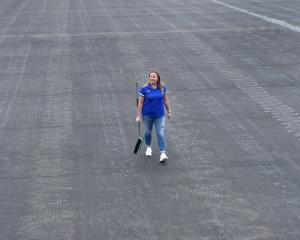University of Otago scientists have helped come up with an ingenious way to help identify whether milk powder being sold as a New Zealand-made in overseas markets is in fact from this country.
This comes as New Zealand exports about $2 billion of milk products to China each year, and amid a recent rise in imitation and sometimes dangerous dairy products in China.
The work by researchers at Otago University and GNS Science showed information on where milk was produced could be gained through testing milk powder - which could help identify if a product suspected of being fake was actually from New Zealand.
The scientists made use of the fact New Zealand's rain had a distinctive natural isotope signature that passed through pasture and into milk products.
Otago University Associate Prof Russell Frew said the technique opened the possibility of verifying the origin of the milk component of mixtures such as infant formula.
Products such as butter and cheese could also be ideal applications for the technique.
Dr Troy Baisden, of GNS Science, said the process was made possible by having the ability to look at the hydrogen isotopes in rain from each storm during the season when milk was produced.
"We work with monthly rainfall samples from all over New Zealand.
"We turn information derived from these samples into a map of daily rainfall chemistry using climate data from Niwa," Dr Baisden said.
The project to collect rain samples from all over the country was funded by the Government, the samples analysed at Otago University and the maps made at GNS Science.
Otago University PhD student Emad Ehtesham carried out analyses of the milk powder and was able to narrow down the origin of the products to either the North or South Island.
Otago University analytical forensic science programme director Associate Prof Jurian Hoogewerff said the technique could help protect New Zealand's agricultural brand.
"In general, New Zealand is very dependent on food exports, so there is an urgent need to protect New Zealand Inc from any major food scandals."












